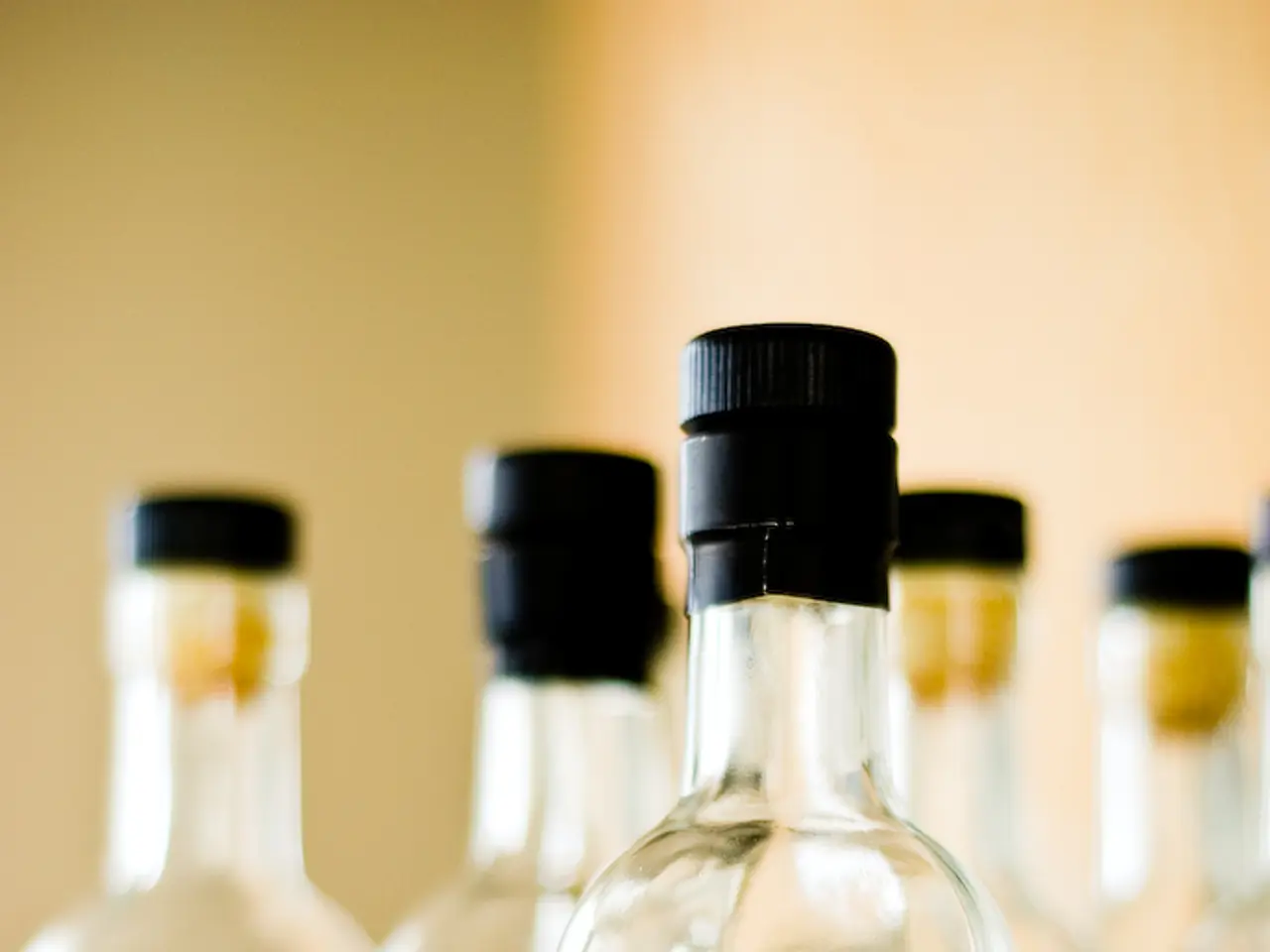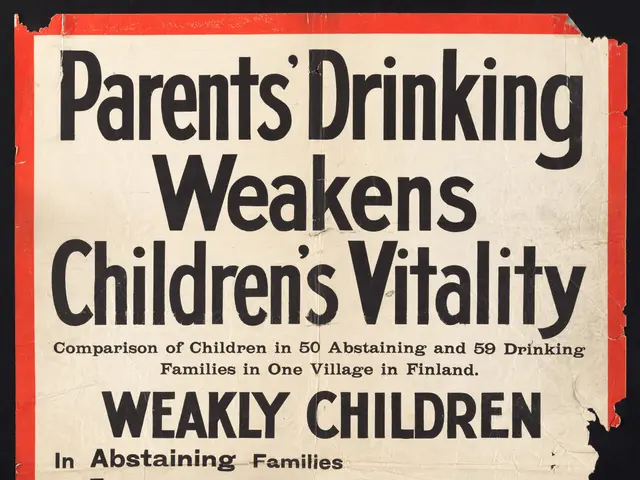Alcohol-Induced Anxiety: Uncovering the Top 3 Causes of Post-Drinking Tension
In the realm of post-night-out woes, a common affliction known as 'hangxiety' has been a subject of interest for scientists and researchers. This condition, characterized by feelings of anxiety and nervousness, often experienced the day after consuming alcohol, has been found to be rooted in a complex interplay of neurochemical, physiological, and sleep-related factors.
The initial calming effect of alcohol on the brain, brought about by the enhancement of GABA (gamma-aminobutyric acid), the brain’s main inhibitory neurotransmitter, sets the stage for the subsequent unfolding of events. Simultaneously, alcohol suppresses glutamate, the main excitatory neurotransmitter. However, as the brain attempts to maintain balance, it reduces its natural GABA production and increases glutamate sensitivity.
Once alcohol is metabolized and leaves the system, this balance reverses sharply. GABA activity falls while glutamate surges, creating a state of heightened excitability and anxiety – a "rebound effect" that typically peaks 16-30 hours after drinking, providing a scientific explanation for why anxiety is often worse the day after drinking.
In addition to neurochemical changes, the sympathetic nervous system, responsible for the 'fight or flight' response, experiences prolonged activation during alcohol withdrawal. This leads to physical changes such as elevated heart rate and blood pressure, increased cortisol production, heightened sensitivity to stress hormones, and disrupted heart rate variability. These physiological stress responses contribute significantly to the feeling of anxiety and nervousness, persisting beyond alcohol clearance and peaking within the same 24-48 hour window.
Alcohol also disrupts sleep architecture, particularly diminishing REM sleep, which is crucial for emotional regulation and stress management. Poor sleep quality causes a secondary increase in cortisol sensitivity and impairs the brain’s ability to regulate emotions well, thus amplifying anxiety symptoms during the hangover phase.
Other contributing factors include toxic metabolites, such as acetaldehyde, a toxic compound produced during the breakdown of alcohol, which can exacerbate feelings of discomfort and anxiety. Dehydration, another common hangover symptom, caused by alcohol increasing urine production, can cause headaches and fatigue that worsen emotional distress.
In summary, hangxiety results from alcohol’s initial calming effect on the brain, followed by a delayed neurochemical rebound that enhances excitability and anxiety, combined with physical stress responses and poor sleep quality. This biochemical and physiological cascade peaks roughly a day after drinking, explaining the delayed onset and intensity of hangxiety.
The good news is that abstinence from alcohol is the only foolproof way to cure hangxiety, with brain repair and blood flow improving within 2 weeks of abstinence. Controlling alcohol intake, getting adequate rest, rehydrating efficiently, and consuming antioxidant-rich foods can help manage hangover symptoms and lower hangxiety. Ensuring good quality sleep and adequate water intake during a hangover can also help lower hangxiety.
References:
1. Neurotransmitter rebound: enhanced glutamate sensitivity and reduced GABA after alcohol clearance [1][4] 2. Sympathetic nervous system activation driving physical anxiety symptoms [1] 3. Sleep disruption reducing emotional regulation capacity [1][3][5] 4. Toxic acetaldehyde metabolite and dehydration effects worsening overall condition [3][5] 5. Alcoholics with anxiety disorders reported lower anxiety levels six weeks into abstinence. 6. Alcohol consumption affects the balance between excitatory and inhibitory brain chemicals. 7. A hangover initiates with fatigue, thirst, difficulty concentrating, nausea, headaches, dry mouth, and stomach issues. 8. Acetaldehyde, a compound formed during alcohol breakdown, increases cortisol levels and thus anxiety. 9. Upon intake, alcohol increases the effect of the relaxing brain chemical GABA and decreases the levels of the excitatory chemical glutamate. 10. High stress levels are associated with higher levels of anxiety. 11. Alcohol increases the level of stress hormone cortisol and keeps it high the next day, up to 2-5 times higher compared to those who abstain. 12. Relative imbalance of GABA and glutamate induces anxiety behaviours. 13. Mild dehydration, a common hangover symptom, can impair cognitive performance and mood. 14. Dehydration, a common hangover symptom, is associated with increased anxiety. 15. Getting good quality sleep can improve hangover effects and reduce hangxiety. 16. Ensuring adequate water intake during a hangover can help lower hangxiety. 17. The next morning when alcohol levels drop, the brain tries to normalize the imbalance by increasing glutamate production by over 200%. 18. GABA release is decreased when alcohol levels drop. 19. Certain food nutrients, such as antioxidants found in berries, nuts, dark chocolate, and green tea, can help mitigate the harm done by acetaldehyde during a hangover. 20. Over 20% of drinkers experience an added symptom: hangxiety, which can last for up to 14 hours.
Science has identified that the characteristics of 'hangxiety', including feelings of anxiety and nervousness, are linked to a complex interplay of neurochemical, physiological, and sleep-related factors within the realm of health-and-wellness and mental-health. In particular, the delayed neurochemical rebound after alcohol clearance enhances excitability and anxiety, simulating the brain's attempt to restore balance following the initial calming effect of alcohol.





